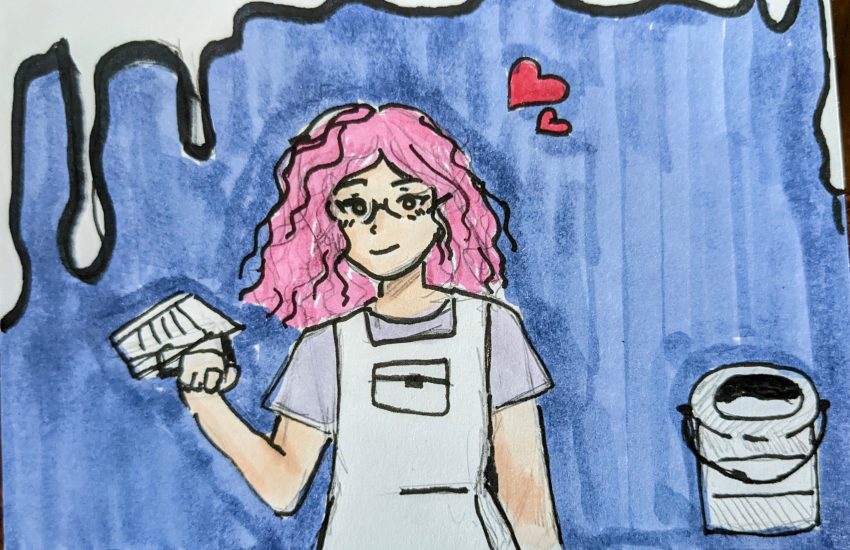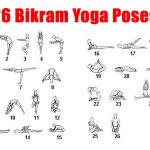[Original artwork ©Jasmine Stalker-Firth]
One of my favourite parts about being a computer scientist is shadowing people and asking questions to find out everything they do. The theory behind it was for me to find out whether I could design a software system which would help them do their job more effectively. In reality, it felt like I was trying on their job and life for size.
Over the years, I spent time on, in and around, building sites, chemical plants, newspaper factories, steel rolling mills, bridges, exhibition centres, call centres, accounting departments, and offices big and small in private and public organisations.
In all that time, I hadn’t realised how much I enjoyed being a tourist in someone else’s life until six weeks ago when I took a week long plastering course. The plastering course was at Goldtrowel, led the teacher who got a bit shy when I said I would be blogging about my experiences. He is into web design so we had lots to talk about.
Plastering is hard work. It takes so much energy that I was completely exhausted by the end of each day and went to bed early every night. That said, the week felt like a holiday as I got up everyday at 6.30am and armed with coffee, a banana and podcasts, jumped in my car to drive one hour to Romford down the M11. Normally, I am there making sure everyone else is ready for their day, that they have what they need for the school day, and I tidy up after they have gone and then I get myself organised for my day’s work which includes squeezing in most of the stuff that goes on in the house too, so it was really nice to focus on just what I needed for me to learn each day from preparing a background surface to boarding and setting a ceiling.
You have to be quick getting plaster on the wall or ceiling before it’s too hard with which to work. So, we would plaster as quick as possible, invariably the speed is dictated by the plaster, and then the nice thing is that we could have a cup of tea whilst it dried, but not too long, as we had to crack on and frenetically do it all over again. I rarely take breaks during my day as I take everything back to my desk and my computer supposedly to maximise my time, so I loved standing around with a cup of tea having a chat. Then at 10.30am a John Krasinski-lookalike would come for my lunch order which a lady would bring in a van later on that day. How nice is that? Normally, I eat whatever is left over from the previous night’s dinner.
Whilst writing this blog I was wondering what category plasterer comes under so I googled it and I came across a website that said that it was construction worker, which comes first in a list of happiest jobs because there’s physical exercise and teamwork. From my experiences I know that is true coupled with a sense of achievement at the end of day, and I was off my head with joy.
Zen and the art of plastering
On top of the above, there’s something very zen about being a plasterer on a course. One day we spent what felt like a lifetime to me plastering a ceiling and then the very next morning the teacher walked around with a hammer and bashed holes everywhere so that we could practise patching. After patching the ceiling, the following morning, we had to rip the whole thing down so that we could board it out and put scrim tape on the joints ready for plastering. It had a very Buddhist nothing-is-permanent-feeling-to-it, which was super freeing.
Last night I was sitting in the pub and looked up at a dent in the wall above a painting, and I turned to my husband and I said: Oh I could fix that in no time, and then I pondered whether I should patch it or just redo that whole section of wall. And, as I was pondering what would be best, the thing that struck me the most, coming from a computing background as I do, is that plastering is thorough work. There are no shortcuts, which is what I am finding people expect of computers more and more.
We think by installing a computer, or an app, or a website, we don’t have to work or think about it , the computer will do it for us. Consequently, people don’t think that much, we are after all cognitive misers. In contrast, plastering and boarding out a wall beforehand, is solid work. You have to do everything bit by bit. Materials need measuring and calculating. It is labour and it is laborious, as each bit of the wall or ceiling is different, but at the end, there is something clean and tidy that wasn’t there before.
Women as plasterers
Normally, I am a bit wary about things that need special clothes but I knew I didn’t have anything useful in my wardrobe and I didn’t want to wreck my jeans so I went off to Screwfix and bought a £15 pair of dungarees, I bought a 31″ waist and thought they would be plenty roomy. Of course, they are designed for men, who go straight up and down, so I had a bit of trouble getting them over my hips, but it was too late to take them back, so I faithfully shimmied into them every morning. I also tried to buy a pair of shoes but they only had ladeezes shoes in my size which had heels and looked like something the Queen wears.
I am a five foot tall, left-handed, woman and have long been aware that this world is not designed for me. Nowhere was it more in my face that week, that I exist in a whole world that has not been designed for me or with me. I had to use a step-up to reach the tops of the wall and the ceilings I practised on. Sometimes I had to stand on tiptoe to reach in the corners, and I felt so out of my comfort zone and everyday thought that I just couldn’t do it. Though typing this today (six weeks later) I have been boarding out a room over the last couple of days and I just cannot wait to mix up some plaster and get on with it. Since the course ended, I have plastered one wall mainly to practise using a different sort of plaster which has limestone in it so it dried much more slowly than the multi finish we used on the course, well apart from the day we used bonding plaster to straighten up a wall which was quite wonky.
There was me and only one other woman on the course, and the afternoon where we had to learn how to cost up our jobs, she refused to put a price on her work. I explained to the men in the room that as women, our time is not valued. We are socialised by society to put in whatever time and effort it takes and is needed to finish a job, so the idea that we could/should/would cost out what we do is radical to us. I don’t know if all the men in the room got what I was saying, but I needed to say it for me. As I said earlier in this blog, I loved getting up every morning and leaving the house early, I didn’t have to organise other people or do the washing, or the dishes, or take the cat to the vet, to fit that in and around my ‘work’ job of computing, I could just leave.
That said, I can’t help but think that if women were in charge of construction we would have a lot less in the way of a tools/screws/fillers/glues and so on for each job, much in the same way if men had babies, I am sure society would be so, so different, not least of all, we would not be witnessing the repeal of Roe v Wade in the USA.
Plastering, rewiring and, the IoT
Will I be hiring myself out anytime soon to do some jobs for people? I don’t think so, though already I have had a couple of people ask me. I would need insurance and I am very slow, so I wouldn’t be cost effective for most people as I need to charge for my time. That said, I was part way through boarding round some electric sockets the other day and I thought: Ooh now that would be interesting, learning to rewire my own place. So if I could do that and plastering, who knows? My PhD is technically in engineering, which was very interesting to do but it’s quite different to know about how to make smart structures and to actually do it so I imagine learning about electricity and become an electrician are completely separate.
Though whilst I am thinking about it, I don’t need my rooms and things online, unlike the smart structures, I helped research back in the day, I don’t need an Internet of things (IoT). Not for me, I’ll stick to human management, for now, but a bit like a new career in plastering. Who knows? I would never say never.







4 comments